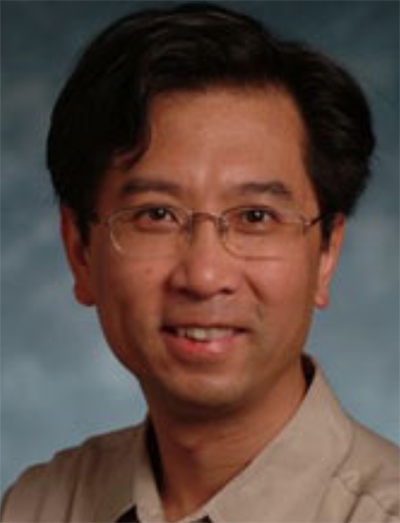Three Geosciences Faculty Named Center Directors
Each of the centers is conducting critical research and is housed within the College of Geosciences.
Sep 12, 2019



Three faculty members in the College of Geosciences at Texas A&M University have recently been named directors of research centers.
Department of Atmospheric Sciences Professor Dr. Sarah Brooks has been named director of the Center for Atmospheric Chemistry and the Environment (CACE). An interdisciplinary center, CACE aims to facilitate collaborative laboratory and field research projects with faculty members across campus, addressing the roles of atmospheric chemistry in fundamental chemical processes, environmental threats resulting from climate change, the exploration of new technologies and mitigation strategies to reduce the impacts of climate change, as well as chemical aspects of air quality and human health. CACE also now houses a state-of-the-art micro-pulse LIDAR that is available to the campus science community for on and off campus field measurements. LIDAR, which stands for Light Detection and Ranging, uses light in the form of a pulsed laser to generate vertical maps of aerosol and cloud properties.
Professor of Atmospheric Sciences and Oceanography and holder of the Louis and Elizabeth Scherck Chair in Oceanography Dr. Ping Chang has been named director of the International Laboratory for High-Resolution Earth System Prediction (IHESP). This new laboratory seeks to develop a new advanced modeling framework for high-resolution multiscale Earth System predictions and provide reliable information at both global and regional scales, taking full advantage of the combined expertise of three world-class institutions: Qingdao Pilot National Laboratory for Marine Science and Technology (QNLM), Texas A&M, and National Center for Atmospheric Research (NCAR).
Regents Professor in Atmospheric Sciences and Texas State Climatologist Dr. John Nielsen-Gammon has been named director of the Texas Center for Climate Studies (TCCS). The mission of TCCS is to initiate, encourage, and support climate-related programs in research, education, service, and outreach, particularly as they relate to improving the quality of life and economic health of residents of the state of Texas. The center advances understanding of why and how the climate is changing, and what those changes will mean for the state of Texas. It promotes translational research that takes what we learn from climate models and puts it into the hands of those who need it. Finally, TCCS takes an active role in communicating information about climate change and its potential impacts to the public.
By Leslie Lee ’09
